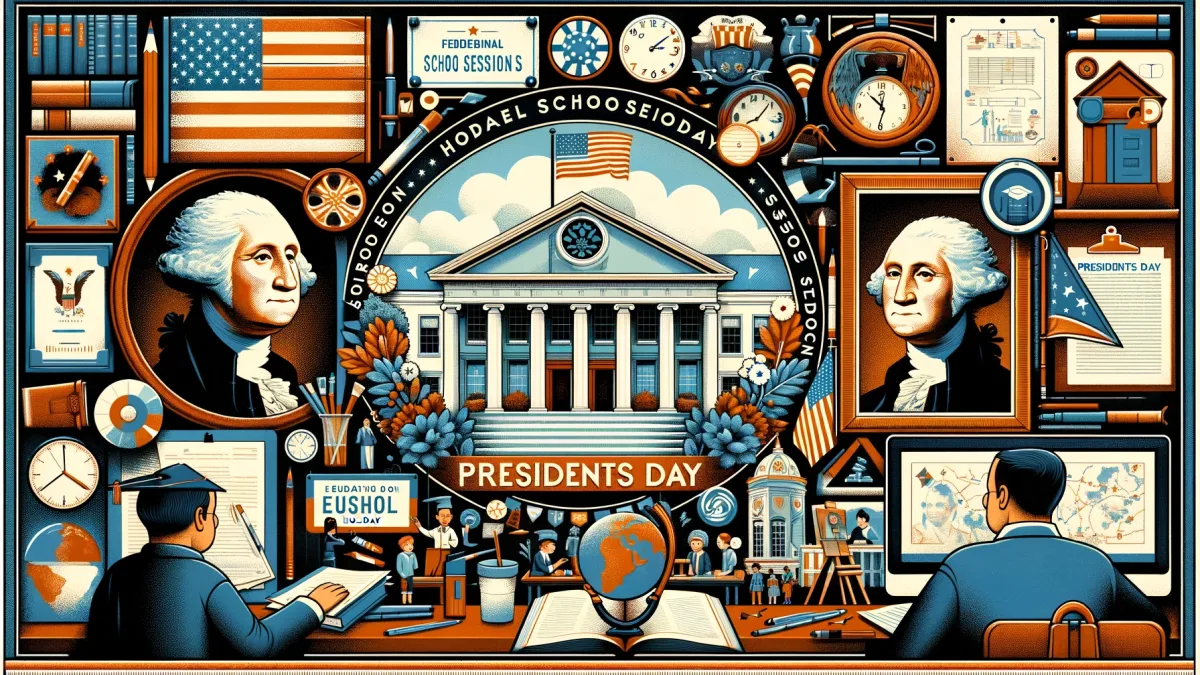Hey there, history buffs, educators, and curious minds! With Presidents Day rolling around each February, you might wonder: Is it illegal for schools to hold classes on this federal holiday? Let’s unpack the legalities, traditions, and educational considerations surrounding school sessions on Presidents Day, so grab a cup of coffee and let’s dive into this presidential query.
Presidents Day: A Brief Overview
First off, Presidents Day, officially known as Washington’s Birthday, is a federal holiday in the United States celebrated on the third Monday of February. It honors George Washington, the country’s first president, and, by extension, all persons who have served as president. Despite its status as a federal holiday, the implications for schools can be as varied as the presidents themselves.
Federal Holidays and Public Schools: No Direct Authority
The key thing to understand is that federal holidays, including Presidents Day, do not automatically mean a day off for public schools across the country. The federal government does not have the authority to mandate school closures on federal holidays—that decision falls to state or local jurisdictions.
State Laws and Local School Policies
Educational governance in the U.S. is primarily a state and local responsibility. This means each state’s department of education, along with local school districts, sets its calendar, which can include decisions on whether to close for Presidents Day.
Keyword Spotlight: “State Education Regulations”
State education regulations play a critical role in determining school schedules, including observance of federal holidays. Some states have statutes or guidelines recommending or requiring school closures on certain holidays, while others leave it entirely to local discretion.
Why Some Schools Are In Session on Presidents Day
Several factors influence a school district’s decision to hold classes on Presidents Day:
- Academic Calendar Constraints: Balancing instructional days, especially with mandated testing schedules and required classroom hours, can lead districts to hold classes on some federal holidays.
- Make-Up Days for Weather Closures: In regions prone to severe weather, Presidents Day might be used as a make-up day to ensure the school year doesn’t extend into the summer.
- Educational Opportunities: Some educators view Presidents Day as a chance to hold special programs or lessons about U.S. presidents and American history, leveraging the holiday’s theme for educational enrichment.
Public vs. Private Schools
While public schools’ observance of Presidents Day is subject to state and local regulations, private schools operate under different rules. Private schools have more autonomy in setting their calendars and may choose to remain open or closed based on their policies or educational philosophy.
Navigating Holiday Schedules: Tips for Parents and Educators
For parents and educators trying to plan around Presidents Day, here are a few tips:
- Check the School Calendar Early: School districts usually publish the academic calendar well in advance, including holiday closures.
- Stay Informed About Make-Up Days: Be aware that severe weather or other disruptions can lead to changes in the school calendar.
- Engage in the Educational Value: Whether in school or at home, Presidents Day offers a unique opportunity to explore U.S. history and civics with students.
Final Thoughts: A Day of Reflection and Learning
Whether or not schools are in session on Presidents Day, it serves as a reminder of the country’s rich presidential history and the ongoing story of American democracy. For those in school, it can be a day of learning and engagement with the past. For others, it’s a chance to reflect on the legacy of leadership that has shaped the United States.









Leave a Reply